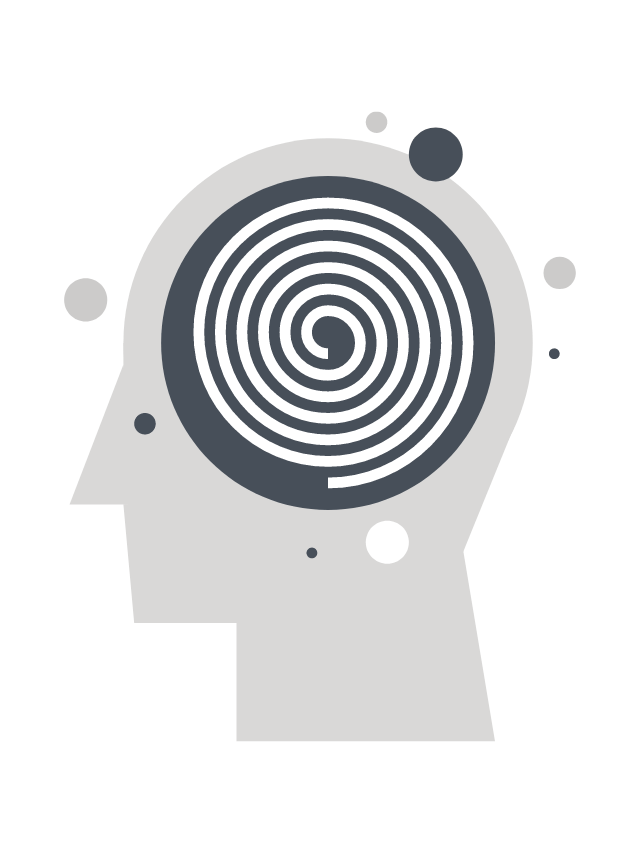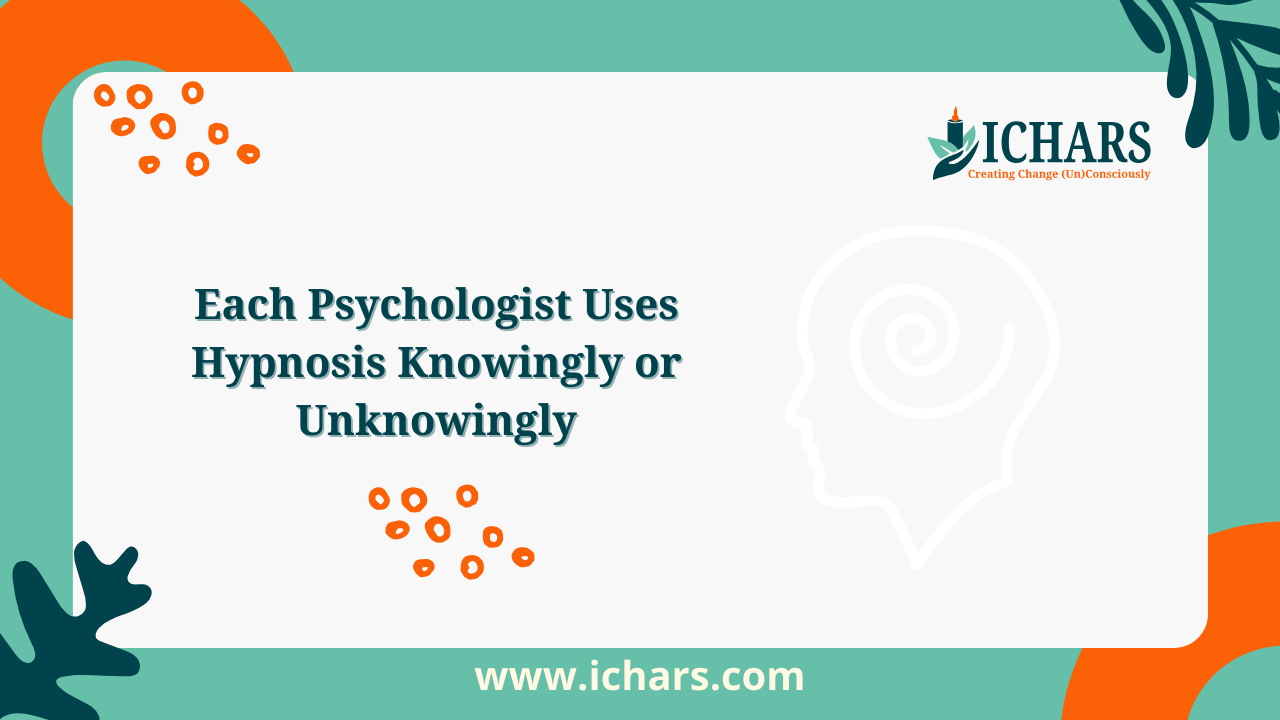
In the realm of psychological therapy, there’s a subtle art that often goes unnoticed yet plays a pivotal role in the healing process. It’s not just about what is said during therapy sessions; it’s about how it’s said. This art is hypnosis, and many successful psychologists use hypnosis techniques without even realizing it.
The Significance of Hypnosis in Psychotherapeutic Practices
Hypnosis has long been shrouded in mystery and misconceptions, but strip away the myths, and you’ll find a powerful therapeutic tool. At its core, hypnosis is about guiding someone into a state of heightened suggestibility where positive changes can be made more effectively. It’s not about mind control or stage tricks; it’s about facilitating deeper communication with the unconscious mind.
For therapists, incorporating hypnotherapy techniques into their practice can enhance their ability to help clients access inner resources, overcome limiting beliefs, and instigate profound change.
Psychologists use Hypnosis to create Unconscious Influence in Therapy
Hypnosis conjures up images of swinging pocket watches and dramatic trance states. But in reality, the same principles of suggestion, imagination, and focused attention can be harnessed in subtle, conversational ways.

As psychiatrist and psychologist Dr. Milton Erickson explored, much of our thinking happens unconsciously. In therapy, hypnotic language patterns can bypass the critical conscious mind. When used ethically and appropriately, this allows therapists to seed helpful ideas that take root and flourish.
Rather than formal hypnosis, the most skilled psychologists use hypnosis in communication patterns naturally. Their words contain embedded commands, artful vagueness, and metaphors that speak directly to the unconscious mind. The use of metaphors or storytelling allows clients to draw parallels with their own experiences indirectly.
Successful psychologists often employ elements of hypnosis through their tone of voice, pacing of speech, and choice of words without explicitly labeling it as such. These elements form part of what we call unconscious influence – subtle ways therapists impact their clients’ subconscious minds during regular conversational exchanges.
Implicit Therapeutic Suggestions that Psychologists Use
Implicit suggestions are another way therapists inadvertently use hypnotic language patterns for therapists. By framing statements or questions positively and focusing on desired outcomes rather than problems (e.g., Imagine feeling calm during your presentation instead of Don’t feel anxious), they’re planting seeds for change at an unconscious level.
This technique aligns closely with conversational hypnotherapy methods which integrate seamlessly into talk therapy without needing formal trance induction – making them accessible tools for any psychologist willing to learn them.
Real-Life Examples: The Positive Impact
Laura is a psychologist seeing a client named James who suffers from insomnia. Rather than directly suggesting you will sleep soundly tonight, Laura uses hypnotic phrasing:
As you lie in bed later drifting into restful sleep, you may be surprised at just how quickly those eyes grow heavy.
This language is more acceptable to James’s critical mind, yet plants the idea of sleeping well. Laura also uses the principle of pacing and leading, meeting James where he is before guiding him toward something new.
Another example is psychologist Chris, who has a teenage client named Samantha with anger issues. Chris aims to help Samantha gain control over her emotions. Rather than confront her anger directly, Chris asks:
Have you noticed any times recently, even small moments, when you paused and made a better choice before reacting?
This question assumes Samantha has some control already, pacing her experience before leading her to build this capacity further. It utilizes vagueness rather than demanding specific answers.
Both Laura and Chris harness hypnotic communication patterns without the formal trappings of hypnosis. Their artful use of language bypasses resistance, shapes perception, and allows for change.
Then there’s John, whose therapist used metaphorical stories to help him see his depression from a different perspective (It’s like being stuck in a dark room but slowly finding windows letting light in). John found new hope through these narratives that resonated deeply within him on an unconscious level.
*Names changed for confidentiality
Where Psychologists use Hypnosis for best results
While hypnotic techniques are proving effective for many psychological issues, they are especially useful for conditions unresponsive to traditional talk therapy alone:
Phobias – Hypnosis can help clients challenge negative associations and develop more empowering perspectives through visualization. For example, a hypnotherapist helped a dog phobic client imagine herself calmly interacting with dogs until her unconscious fear response was gradually overwritten with positive new associations.
Addiction – Hypnotic regression can reveal root causes while suggestions for self-mastery help strengthen willpower and resilience. A study on smokers found hypnosis was significantly more effective for long-term abstinence compared to nicotine replacement alone.
Trauma – Hypnosis reduces hyperarousal and provides access to dissociated memories. Therapists can then reframe events and desensitize clients to past triggers. Military veterans with PTSD reported fewer flashbacks and improved sleep after receiving hypnotic interventions.
While the conscious mind thinks in words, the unconscious communicates through imagery, metaphor and emotion. Hypnotic techniques leverage these innate pathways for deep-seated therapeutic change.
We have created a list of case studies where psychologists have used hypnosis to help clients resolve emotional issues and achieve desired outcomes
Benefits for Psychologists Learning Hypnosis

While some psychologists use hypnosis techniques naturaly, formal training can help integrate this skill intentionally and ethically into your practice.
Learning hypnosis and conversational trance work provides therapists with:
- An expanded toolbox of techniques for bypassing resistance and shaping perception.
- Enhanced influence and suggestibility skills for seeding helpful therapeutic ideas.
- Deeper rapport and trust with clients through pacing and leading.
- Improved focus and imagination for achieving goals like managing anxiety, increasing motivation, releasing grief, and more.
- Confidence utilizing methods that master therapists use unconsciously.
- Ethical grounding for using hypnotic techniques appropriately and avoiding misuse.
By studying hypnotic language patterns, psychologists can enhance their effectiveness and more profoundly impact their clients’ lives.
The Future of Hypnotic Psychotherapy
Emerging research continues to demonstrate the power of hypnotic techniques paired with therapy.
Studies show hypnotically enhanced CBT helps clients make changes faster than CBT alone. Other evidence highlights the positive effects of hypnosis for issues like pain, anxiety, and PTSD.
As the stigma around hypnosis fades, psychologists are recognizing and seizing its benefits.
While talk therapy remains foundational, hypnotic methods promise to shape the future of client care by tapping into the oceanic depths of our unconscious potential.
Joining the Cognitive Hypnotic Psychotherapy Diploma Program
As we’ve explored, many acclaimed psychologists and therapists are already implementing hypnotic techniques in their practices – whether they realize it or not. Hypnosis training can help integrate these methods more systematically and expand the psychologist’s toolkit for facilitating lasting change.
While some still cling to outdated misconceptions, modern hypnosis is an evidence-based therapeutic framework that can be combined with existing approaches. Learning hypnotic skills like trance induction, metaphor development and the Milton Model empowers therapists to better access and reshape the unconscious roots of their clients’ issues.
A Unique Perspective: Trends Shaping Future Practices
Emerging research continues to validate what many practitioners have known intuitively: that bridging conscious therapeutic dialogue with subconscious communication channels enhances treatment efficacy significantly—ushering us towards an era where integrated psychotherapeutic models become standard practice rather than novelties within mental health care fields worldwide!
As we continue unraveling layers surrounding ‘beyond conscious conversation,’ let us embrace opportunities presented by learning holistic approaches encompassed within Cognitive Hypnotic Psychotherapy—a gateway leading towards enriched professional fulfillment alongside profoundly impactful client transformations alike…
By combining hypnotic techniques with established psychotherapeutic approaches, psychologists can experience increased success even with complex client cases. If you feel your practice could benefit from the integrative power of clinical hypnosis, it may be time to register for our upcoming training program.
Unlock your full potential as a catalyst for deep, holistic change. With the right skills, you can move beyond conscious conversation and embrace the subtle art of hypnosis in your therapy practice. The opportunity to start transforming lives is only a course away.
Are you prepared? Your next step awaits…

